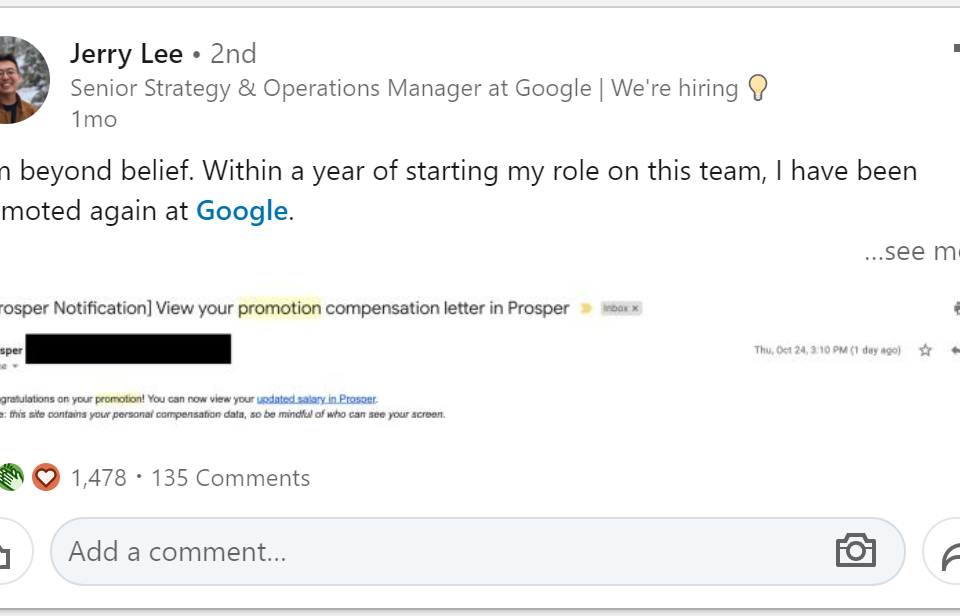
Over the years, I’ve worked with and interviewed numerous C-level business owners, top movie directors, screenwriters, actors, musicians, and more. Every single one of these people had something that stood out more than anything else.
Intuition.
They were highly intuitive and had unwavering confidence in their decisions.
This did not mean they were arrogant, but that they had laser focus on what would work and what wouldn’t.
Most often, highly successful people are paving their own path which is what allows them to stand out amongst their peers. However, in order to do so successfully, they have to continually train their intuition to be precise and accurate. Without it, they are lost, and so is their art, their company, and everything else.
This brings me to my next question.
If all highly successful people must have great intuition, then how do they get it in the first place?
I believe intuition is one of those things that you either have or you don’t. If you have a base level of intuition, then you’re able to fine tune it. If you don’t, then you’ll have a tough time no matter how hard you try.
Think of it this way: If you’re under 6’0” tall, you will have a very hard time getting into the NBA even if you’re good at everything else. However, if you’re over 6’0” and fine tune your skills, you will have a good shot at playing in the NBA.
Intuition is the same. If you look back at the childhoods of highly successful people, you’ll see that from a young age they’d already been practicing their skill sets. Take Jeff Bezos, the founder of Amazon, as an example. As child, he rigged an electrical alarm to keep his siblings out of his room. He had been training his intuition, figuring out how things work and how to solve problems from the beginning.
Justin Timberlake at the age of 11 was already performing live on TV singing country music and gospel.
Academy Award Winner Marion Cotillard’s parents were both actors and teachers. Marion Cotillard even as a little child had the experience of acting in her father’s plays.
There’s no doubt that for any of these people who had early starts, they’ve had habits and intuitions deeply imprinted onto their personalities.
Furthermore, having the experience of being around other successful people who have “done it before” provides endless opportunities to continue to build upon, learn, and fine tune intuitions that are important for confidence.
That being said, perhaps you have a good base level of intuition but since you aren’t quite “there” yet, you still don’t have the peers to challenge and grow your intuition.
There’s three things that you can do immediately.
1. Read biographies
Biographies are a great way to start gaining a deeper understanding of how extremely successful people think and the paths that they took in order to accomplish great feats.
It’s no surprise that Elon Musk’s favorite books include multiple biographies such as:
- Howard Hughes: His Life and Madness by Donald L. Barlett and James B. Steele
- Einstein: His Life and Universe by Walter Isaacson
- Benjamin Franklin: An American Life by Walter Isaacson
I’d also like to add that one of my own personal favorite biographies is actually:
- Elon Musk: Tesla, SpaceX, and the Quest for a Fantastic Future by Ashlee Vance
In every single person’s life, there are always so many possible pathways. Each decision made at any moment can drastically influence the course of one’s life. Instead of guessing what might be the right decision, isn’t it easier to first learn about the choices that ultra successful people made and how they impacted their lives? Reading a biography of someone successful is like having the best strategy guide possible in order to make the right decisions.
Once you have read biographies such as Benjamin Franklin’s, you’ll find out exactly what he did as a child through adulthood and the decisions he made which ultimately led to his success.
Steve Jobs once said that you cannot connect the dots looking back. Well, I believe that reading the biographies of successful people who ended up connecting all the right dots provides valuable lessons and helps guide you in times of indecisiveness.
In the end, the more in tune you are with the careers of people who you look up to and how they got there, the better you will be at training your own intuition to make the right choices.
2. Listen to podcasts
Of course it’s a given that if you surround yourself with a lot of really smart people, you’ll probably end up smarter by association, right? Well, I can tell you for a fact that I had a hard time convincing super smart and successful people to hang out with me, especially when I was just a busboy making $7/hr at a bar in Westwood. The good news is that there’s hundreds of great podcasts featuring ultra talented and successful people in virtually every field. Many of my favorite podcasts are conversational: you feel like you’re sitting at a table next to them, eavesdropping.
One of the best parts of podcasts is that you’re part of the conversation, but you can’t talk. This is actually a great thing because for once, you can shut your mouth and just listen to smart people talk instead of expressing your opinion on stuff that you don’t know shit about. Okay, that came out mean — but seriously, sometimes the best way to learn is to sit back and just listen.
A few of my favorite podcasts to start with include the following. You can find any of these directly on iTunes or your favorite podcast app.
The Joe Rogan Experience
Joe Rogan is a stand up comedian, host of the UFC, and a Brazilian jiu jitsu black belt. He’s a man of many talents and he brings on super cool people like Neil deGrasse Tyson (astrophysicist), Eddie Huang (creator of Fresh off the Boat), Andreas Antonopoulos (top Bitcoin and information security expert) , Shane Smith (Vice), Anthony Bourdain, and many more.
The tone of the podcast is highly conversational, as they’ll talk about anything and everything which I find is incredibly interesting. You get to be a fly on the wall eavesdropping on a conversation and understanding how the minds of these people function, whether it be on everyday topics, their area of expertise, or something else. It’s fascinating to say the least.
The Marc Maron Show
Marc Maron brings on a variety of highly successful and active guests in the entertainment industry and conducts an interview-style podcast. Some of my favorite podcasts of all time include his two part interview with Louis C.K. which ended up getting quite emotional as they candidly discussed their falling out live on the podcast. Marc Maron has also brought on top directors such as Richard Linklater, the director of Boyhood, the Before Sunrise series, and many other great films.
However, probably one of the most intriguing podcasts I’ve ever listened to was Marc Maron and Robin Williams. Prior to Robin Williams’s suicide, he had a deep podcast with Marc Maron detailing his drug addiction problems. One of the most interesting things I noticed was that Robin Williams was in so much pain that he joked about committing suicide by hanging himself and laughed it off in the podcast four years earlier.
3. Ruthlessly self-examine
Reading biographies can be a great way to develop your intuition based on what highly successful people have done in the past. Listening to podcasts serves as a way to calibrate your judgement by comparing yourself to other highly successful people in the world. However, none of this matters if you don’t constantly and ruthlessly examine yourself.
What do I mean by ruthlessly examine yourself? I mean you need to keep your ego in check, always be open minded, and recognize when you aren’t right about something. Do you catch yourself saying “I know” a lot? Do you fight useless battles with people because you’re latching onto a self-propelled truth just to protect your ego from being wrong?
Not so long ago, I had an opportunity to work with one of the all-time greatest directors in the world. He had gotten used to being right for so long that no one dared to question him. Instead, the feedback he was getting was from a bunch of yes-men. The end result was that over the years his brilliant intuition became miscalibrated and to no surprise, the film was a disaster — it ended up being one of greatest box office flops of all time. This just goes to show how important it is to constantly be getting feedback from other intelligent people and staying open to always questioning yourself.
—
As a starting point, plan to read a biography a month. Podcasts are great to listen to whenever you’re on the road, commuting, or just doing some busy work that you don’t need to give your full attention to. In no time, you’ll start finding yourself accumulating new ways of looking at things and expanding your worldview.
Follow me on Twitter or Instagram at @dominiczhai or check out whyyounodoctor.com for more resources to help you hit your goals.


